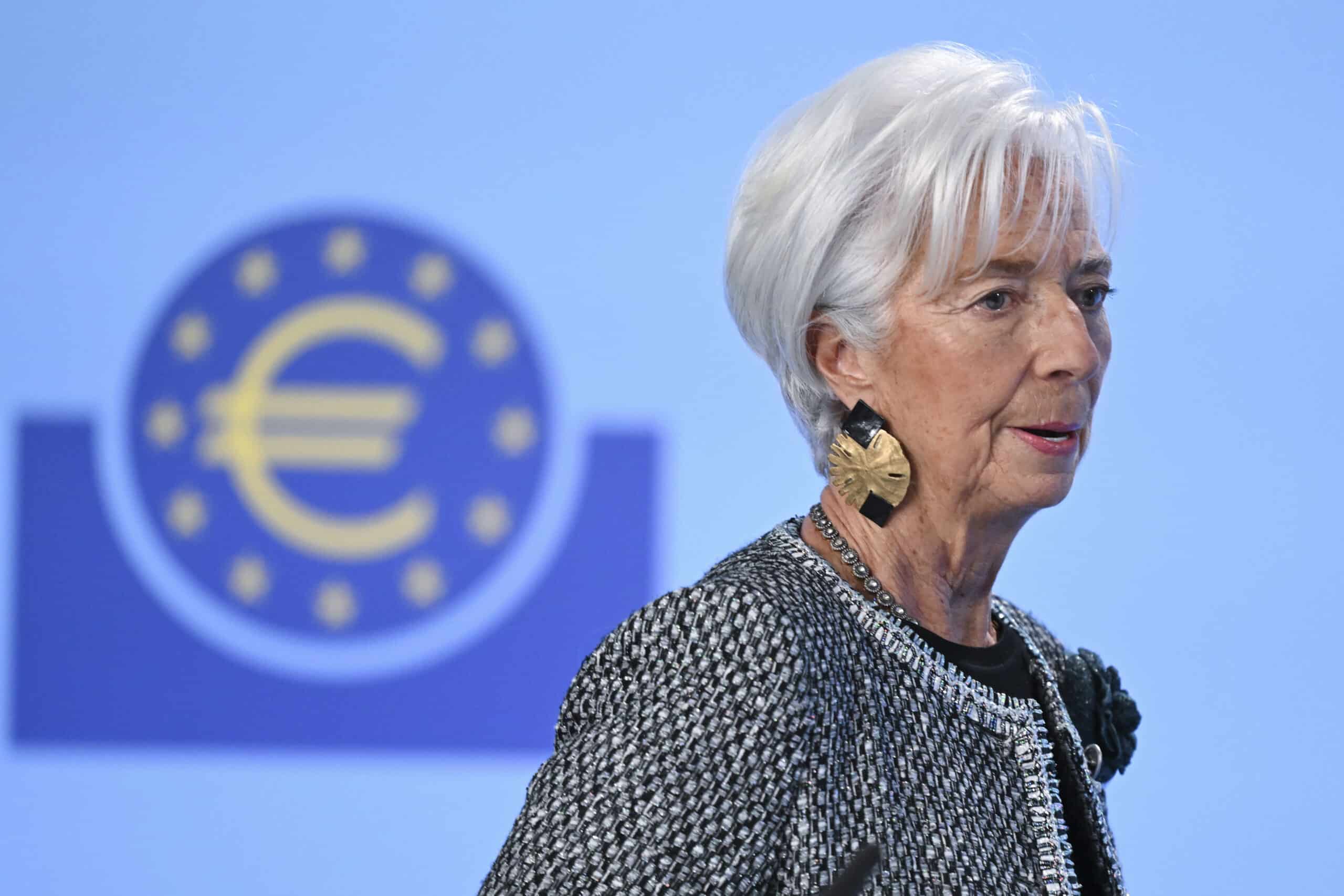
President of the European Central Financial institution Christine Lagarde (Arne Dedert/dpa through AP)
FRANKFURT, Germany — European Central Financial institution policymakers look more and more prone to lower rates of interest once more on Thursday, with US President Donald Trump’s stop-start tariff bulletins sowing concern within the eurozone.
The uncertainty round Trump’s subsequent transfer, and the destructive affect it might have on progress inside the single forex bloc, has intensified requires the ECB to ease borrowing prices additional.
Worries over rising costs have pale into the background, as as soon as sky-high inflation charges have drifted again down in direction of the ECB’s 2-percent goal.
The central financial institution has made six quarter-point cuts since June final yr as inflation has fallen, bringing its benchmark deposit price all the way down to 2.5 % from 4 %.
After such an extended slicing streak, the central financial institution “appeared set for a pause” after its final assembly in March, ING financial institution analyst Carsten Brzeski mentioned.
However the image has modified considerably since Trump’s announcement of a brand new spherical of swinging tariffs, which he known as “Liberation Day”.
Trump imposed 10 % tariffs on all imports into the US.
His choice to droop even increased tariffs for many international locations for 90 days and invitation to key buying and selling companions to chop a deal have carried out little to quell issues.
READ: International uncertainty will ‘definitely’ hit progress: World Financial institution president
“US tariffs on the EU and plenty of different international locations have introduced again progress issues for the eurozone, no less than within the nearer time period,” Brzeski mentioned.
For the members of the ECB’s governing council assembly in Frankfurt, a pause in price slicing was “now not an choice”, he mentioned.
‘Commerce uncertainty’
Going into the assembly, eurozone policymakers couldn’t be certain what tariff charges would finally apply to transatlantic commerce.
For now, Trump has rowed again on his preliminary choice to hit all European Union imports with a primary 20 % tariff, which might rekindle inflation.
However the White Home has additionally imposed 25 % levies on the automotive, metal and aluminum sectors, and opened probes into semiconductors and prescription drugs that might result in extra industry-specific tariffs.
“Heightened commerce uncertainty and tighter monetary circumstances” attributable to Trump’s bulletins have elevated the “draw back” threat for the eurozone, in line with analysts at Italian lender UniCredit.
In that context, one other lower to alleviate stress on households and companies and help the financial system appeared “simple”, the analysts mentioned.
The ramifications of upper US tariffs would “outweigh the optimistic impulse” given by huge deliberate spending within the eurozone’s largest member, Germany, they mentioned.
The incoming authorities in Berlin led by Friedrich Merz has lined up tons of of billions of euros in additional money for protection and infrastructure, offering a lift that may very well be felt throughout Europe.
READ: WTO chief says ‘very involved’ as tariffs lower into international commerce
‘All the time prepared’
However Germany’s stimulus measures would solely “kick in” in 2026, whereas the affect of Trump’s shake-up of the worldwide buying and selling system could be felt nearly instantly, the UniCredit analysts warned.
As for the costs of products and companies, US tariffs made a “additional decline in inflation within the eurozone much more probably”, mentioned Robert Greil, a strategist at personal financial institution Merck Finck.
Inflation among the many 20 members of the eurozone has come down considerably from the double-digit highs seen in late 2022 and sat at 2.2 % in March.
The only forex has gained in energy relative to the greenback, which ought to make imports cheaper going ahead, whereas hefty US tariffs on China might see low cost items diverted to Europe, Greil mentioned.
Observers will hear rigorously to ECB president Christine Lagarde’s remarks after the charges announcement for a touch of how the ECB could reply going ahead.
Lagarde final week signaled policymakers’ willingness to help the eurozone in a extra crucial state of affairs, the place Trump’s tariff blitz precipitated a risk to monetary stability.
The ECB “is at all times prepared to make use of the devices that it has out there”, Lagarde mentioned in Warsaw.
READ: Trump tariffs might put the US Fed in a bind, Powell warns


